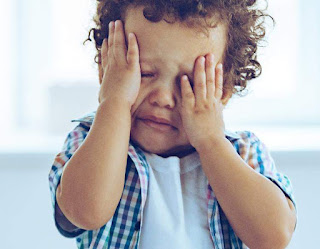Gordon Kubanek: Green Party of Canada Candidate for Nepean
Gord is a professional Engineer, HS Physics teachers, former bee keeper and writer of children’s books who has demonstrated his commitment to the Green Party by being a candidate 6 times, provincially and federally. He has devoted his environmental energies in working as a Board member with the CDN. Assoc. for the Club of Rome, an environmental think tank, whose parent in Rome funded the research that became the [in]famous “Limits to Growth” book. Gord has lived in the region of Ottawa for 30 ye
Friday, 1 March 2019
How to talk to Children and Youth
about the Climate Crises
How to talk to Children and Youth and the Climate Crises
I have been a High School teacher for 30 years, so talking with
kids is as natural to me as skating. However, when it comes to the Climate
Emergency I find myself frozen: how to talk and learn about something so
terrible, yet so seemingly hypothetical [to them], that will probably make
their lives much, much more challenging that we have enjoyed, a future of trial
and tribulation – but also of great potential, possible positive transformation
– a time of great paradox when the worst can spur us to do be our very best?
Well, I as I am doing some volunteer teaching at a small private
school initiative again next week where I am teaching chemistry – with a focus
on the water molecule – I am about to try to have this conversation with kids
age 13 to 16. Given that I have a free hand in what I teach it will be very
different than my time in the public system where I was tied to the curriculum
so my experience there is not as great a preparation as it could have been as
my hands were tied in many ways. So, dear reader, I don’t actually – yet – have
an answer to this question – but, I hope to report to you in next week’s
column.
In the meantime let’s see what
others have to say. Jeff Goodell,
a climate change reporter for 20 years, has used this approach with his kids:
“It’s an ongoing conversation that one has throughout their life.
It starts out with talking about science — in the way that a three-year-old or
four-year-old would understand it. You can’t grasp what’s happening without
understanding two things: The fundamentals of science and faith in creativity.
Those are the two things I try to underscore with my kids. In the past, people
have had to deal with all kinds of complicated challenges, from plagues to
political revolutions. Dealing with change is what we as humans have to do.”
Personally, the rational approach did not work that well with my
kids – they are not interested in bad news, challenges, what ‘could be’ – they
are interested in their problems TODAY and NOW… only changed after they
graduated from University could I talk about the Science – before then I had
focus on the emotional, on the joy of life, on the good things they can do to
make the world a better life – and most of that had to be by example – my wife
and I had to change the way we lived to SHOW THEM.
Certainly, fear is counterproductive, as explained by this article
from the Rainforest
Alliance:
One day when my son was
about three, my husband—a professor of physics at New York University—decided
to teach our little boy about the life cycle of stars. It was all going well
until he casually mentioned that in about 5 billion years the sun would become
a flaming red mass that would engulf the Earth in fire. After a moment of
silence, our son burst into hysterical tears—and his anxiety didn’t fully
subside for several months. (As it turns out, telling a three-year-old “it
doesn’t matter because you’ll be dead in 5 billion years anyway” does not have
a calming effect.)
Since
then, I’ve been cautious about exposing our kids to the harsh realities of
human existence. Probably too cautious—my son is now nine years old and I’ve
barely touched on the issue that I have dedicated my career (and 90 percent of
my anxiety) to: climate change.
All I can say for sure is that it’s tough, it depends upon the age
of your child and it means that you must change, you must be an example, you
cannot be a hypocrite in any way, fear is counter-productive but so is
pretending all is well, and most importantly it is a conversation you MUST
have. If you doubt that kids can be talked to and then in turn educate we
adults – think of Greta Thunberg pictured below. Good Luck!






0 Comments:
Post a Comment
Subscribe to Post Comments [Atom]
<< Home